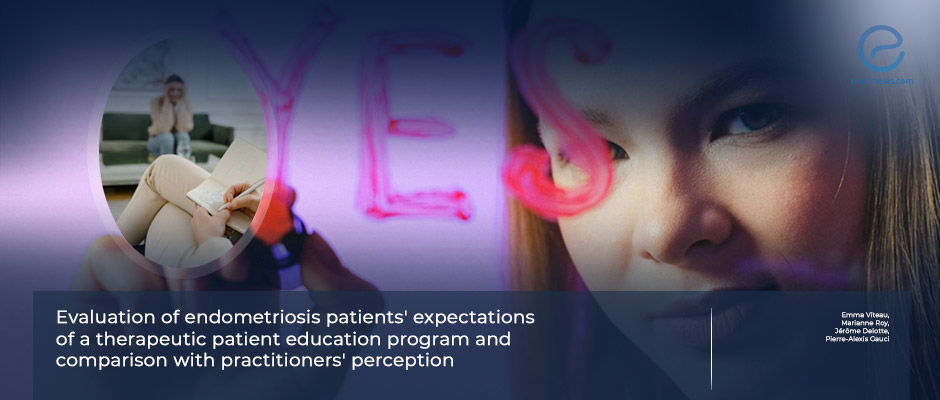Endometriosis Patients Endorse Early Education Programs
Jul 16, 2025
Therapeutic Patient Education Emerges as Key in Supporting Women with Endometriosis
Key Points
Highlights:
- Therapeutic patient education has proven beneficial in other chronic diseases but is underexplored in endometriosis care.
Importance:
- Understanding patient expectations for therapeutic patient education programs can guide the development of structured, patient-centered educational interventions in endometriosis.
- Aligning these programs with both patient and healthcare professional perspectives ensures relevance, accessibility, and greater impact on quality of life.
What’s done here:
- Researchers conducted anonymous online surveys among 450 patients with endometriosis and 102 healthcare professionals involved in the care of patients with the disease.
- Preferences for therapeutic patient education session content, organization, timing, and involvement of family/partners were explored.
- Patient expectations with those perceived by healthcare professionals to identify convergences and divergences compared.
Key results:
- 87.8% of patients with endometriosis preferred therapeutic patient education prioritizing symptom management and improvements in quality of life.
- There was no significant difference in the expectations of the patients according to their satisfaction in terms of management or their previous participation in therapeutic patient education sessions.
- 69.9% of patients with endometriosis wanted their partners to be involved in therapeutic patient education sessions.
- The priority themes and objectives of the sessions were shared between patients and healthcare professionals.
Limitations:
- The responses are declarative, which may introduce a subjectivity bias.
- There may have been a selection bias in the study, with patients living further away from the center probably being underrepresented.
From the Editor-in-Chief – EndoNews
"This study delivers an unmistakable message: patients with endometriosis are ready to move from passive care to active empowerment.
Therapeutic patient education is no longer optional—it is essential. The era of delayed diagnosis and fragmented management must end. Healthcare systems must act now to embed structured, patient-driven TPE into every stage of care. By doing so, we can finally dismantle barriers, elevate quality of life, and transform the trajectory of this complex disease. The time for hesitation is over; the future of endometriosis care demands bold action."
Lay Summary
Patients with endometriosis strongly support personalized therapeutic patient education programs from the time of diagnosis onwards, according to a new study published in the International Journal of Gynecology & Obstetrics.
When they compared the expectation of patients and the point of view of professionals, the auhtors of the study found that healthcare professionals involved in the management of endometriosis were legitimate in setting up endometriosis therapeutic patient education programs. However, there is still a need to develop flexible and tailored therapeutic patient education sessions.
“This study paves the way for the structured, evidence-based development of [therapeutic patient education] sessions for patients with endometriosis,” the authors of the study said.
To better understand the expectations of patients with endometriosis in terms of specific therapeutic patient education programs and compare these expectations with what healthcare professionals perceive, a team of researchers led by Dr. Pierre-Alexis Gauci from the Department of Obstetrics and Gynecology, Reproduction and Fetal Medicine, Université Côte d'Azur-Centre Hospitalier Universitaire de Nice in Nice, France sent anonymous online surveys to 450 patients with the disease as well as 102 healthcare professionals involved in the care of patients with the disease.
A total of 153 patients, average age 34.4 years, and 51 healthcare professionals responded to the survey. The mean delay in disease diagnosis was 9.2 years.
The results showed that the majority of patients (87.8%) preferred therapeutic patient education prioritizing symptom management and improvements in quality of life.
There was no significant difference in the expectations of the patients according to their satisfaction in terms of management or their previous participation in therapeutic patient education sessions.
Most patients (69.9%) wanted their partners to be involved in the sessions.
The priority themes and objectives were shared between patients and healthcare professionals. However, there were some discordances about sessions on infertility, psychological support, and the participation of sexologists.
Research Source: https://pubmed.ncbi.nlm.nih.gov/40586396/
patient education programs quality of life therapeutic decision making

